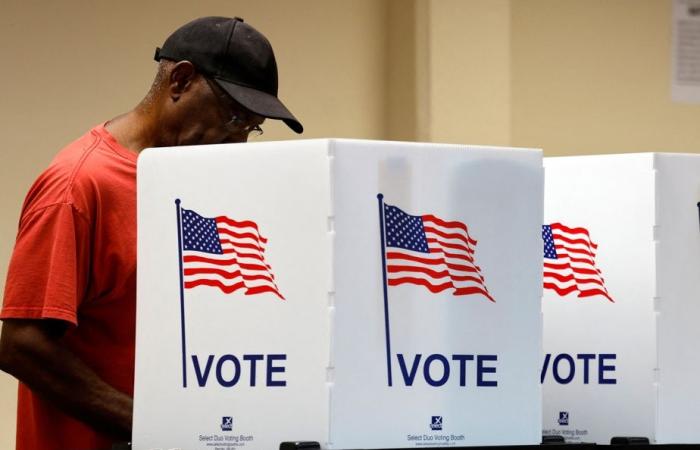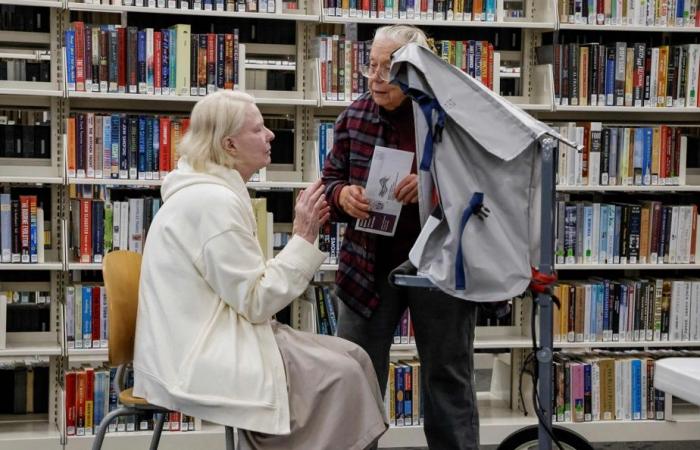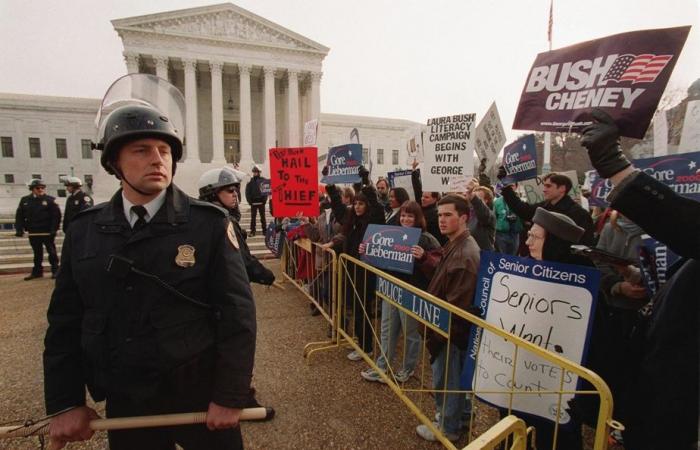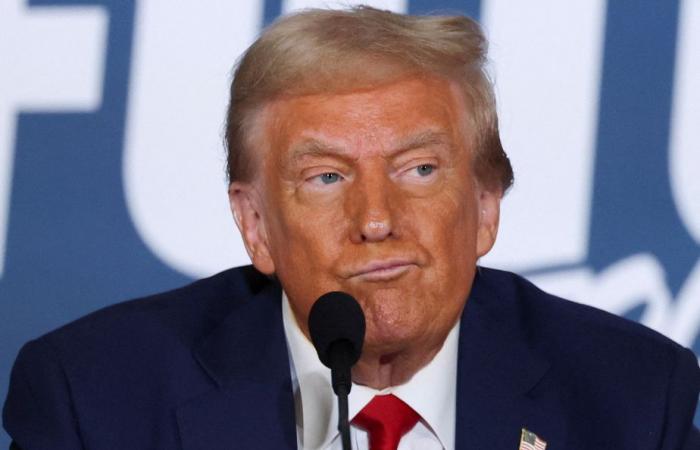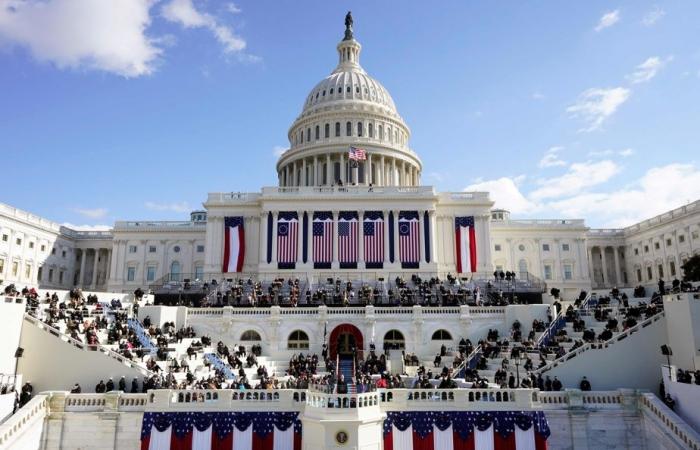Americans are called to the polls this Tuesday, but it is unknown whether the results will be known quickly, whether they will be accepted by the Republican candidate, and whether it will take place peacefully. Here are seven elements that could keep observers in suspense.
Posted at 1:36 a.m.
Updated at 5:00 a.m.
Red mirage et blue shift
The red mirage and the blue shift could strike again this year. What is it about? This occurs when the first results announced on election night in key states seem to favor the Republican candidate, then the table gradually tilts in favor of the Democratic candidate. This is because Republican voters tend to vote on Election Day, while many Democrats vote by mail, and ballot counting often cannot begin until Election Day.
PHOTO TANNEN MAURY, ARCHIVES AGENCE FRANCE-PRESSE
Many voters showed up at the library in Madison, Wisconsin, on October 22 to vote early. According to the Catalist firm, people aged 65 and over represented 46% of voters who have voted in advance so far.
Older voters
A week before Election Day, the firm Catalist revealed that voters who had already voted in states that allow early voting were on average older this year than in 2020. For the 39 states for which the firm has data, people aged 65 and over represented 46% of voters who voted in advance, up 10% compared to 2020. It must be said that in 2020, the COVID-19 pandemic was raging, and voting in anticipation was the first choice of many voters. We will see if the increase among older voters will be noticeable when voting in person on Election Day.
Delayed results?
In 2020, it was only four days after the vote that the major networks were able to project a victory for Joe Biden. This year, such a scenario is not impossible, especially if the result is very close in states like Pennsylvania or Wisconsin, where officials cannot begin tabulating votes received by mail before Election Day. In Georgia and Arizona, the rules have changed since 2020, and vote counting can begin earlier.
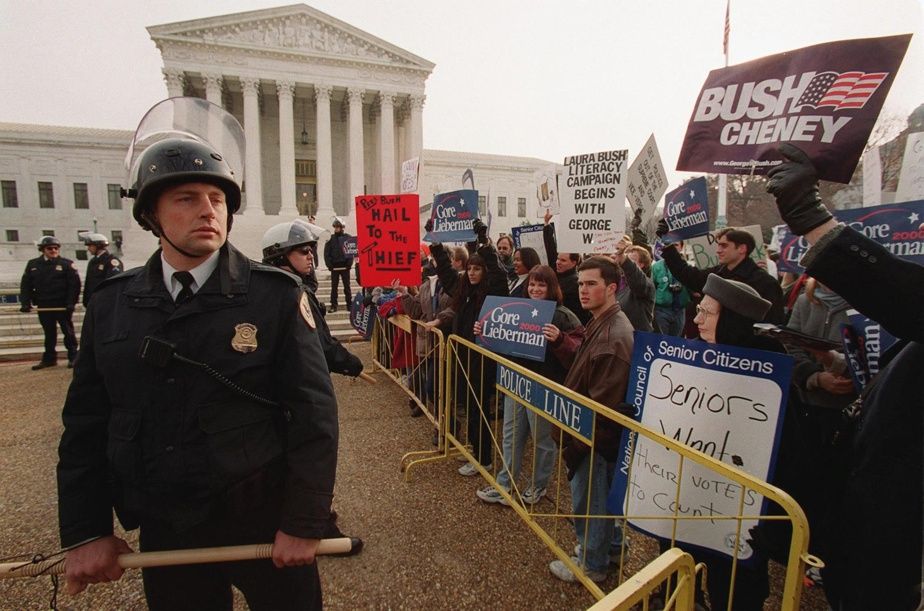
PHOTO MANNY CENETA, AGENCE FRANCE-PRESSE ARCHIVES
People demonstrate in front of the U.S. Supreme Court on December 11, 2000, as the court is scheduled to hold hearings on whether to continue the recount in Florida.
36 days
That’s how long it took to know the winner of the 2000 election. George W. Bush won against Al Gore when the Supreme Court decided to put an end to a partial count in Florida.
Fears of conflagration
Two out of three Americans fear an eruption of violence in the wake of November 5, according to an Ipsos poll. It is Trump who is fanning the specter of violence, claiming that if he loses, it will be because the Democrats cheated. In Washington, we are already starting to install metal barriers. More than 2,100 officers will be on duty at the Capitol on Election Day and in the months following. Exceptionally, the crucial day of January 6, 2025, during which the vote will be certified, will benefit from the same level of security as the investiture ceremony, which will be held on January 20.
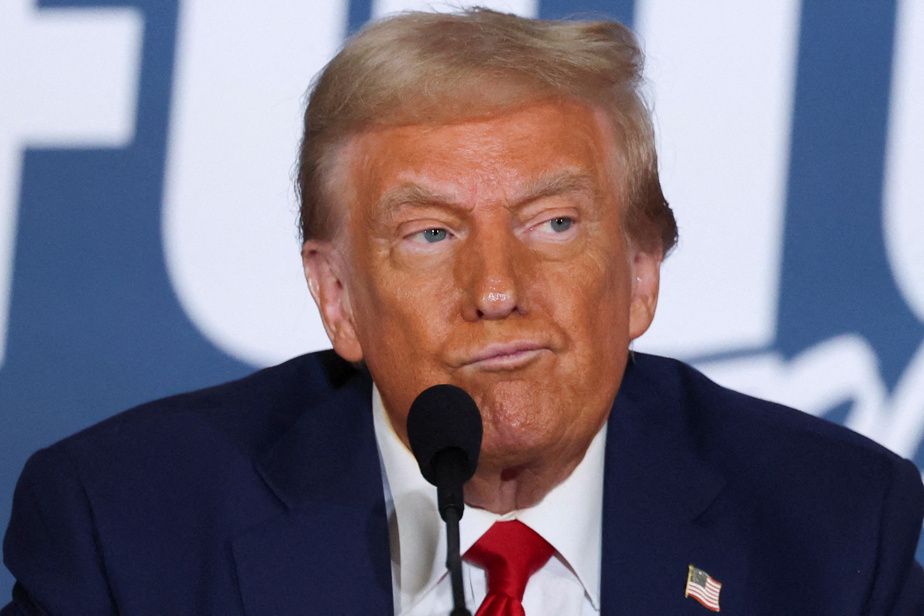
PHOTO BRENDAN MCDERMID, REUTERS
Donald Trump
They will cheat. They cheat. All they want to do is cheat.
Donald Trump, during a speech in Juneau, Wisconsin, October 6, 2024
Tensions and violence before the vote
Even before voting day, violence is present. A week before the election, the Reuters agency had already listed more than 50 events of political violence in the United States linked to the presidential election. On October 22, a 60-year-old man was arrested near Phoenix, Arizona, in possession of more than 120 weapons and more than 250,000 rounds of ammunition at his home and in his car. Authorities said he shot up Kamala Harris’s county office during the night, and was preparing to commit a “mass crime.”
Tidal wave of prosecutions?
In the wake of the 2020 election, Donald Trump’s team filed dozens of lawsuits in court. Although the effort ultimately accomplished nothing, the headlines and disinformation campaign that accompanied the process convinced many of his supporters that the election was rigged. A tidal wave of prosecutions is expected this year as well. A week before the vote, more than 187 election-related lawsuits were filed, a very high number historically, according to data from Democracy Docket, a Democratic group that tracks elections.
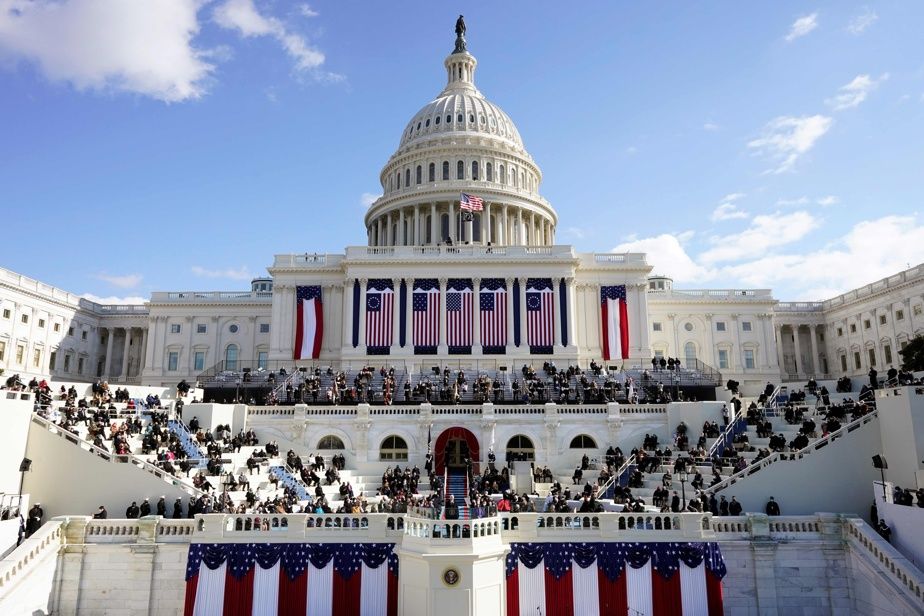
PHOTO PATRICK SEMANSKY, AGENCE FRANCE-PRESSE ARCHIVES
The inauguration of Joe Biden on January 20, 2021
Key dates leading up to the inauguration
Even when the election is over, the process of selecting the next president will continue. December 11 will be the deadline for the resolution of electoral disputes, while the meeting of electors for the electoral college votes will take place on December 17. Congress will then proceed under close surveillance to the counting of the votes of the electors on January 6, 2025. Finally, the inauguration of the new president will take place in Washington on January 20, 2025.

